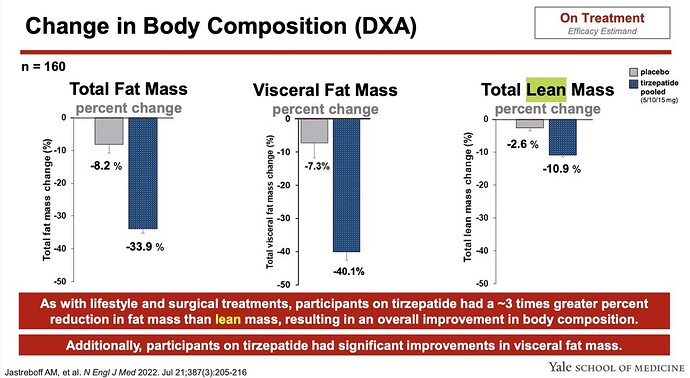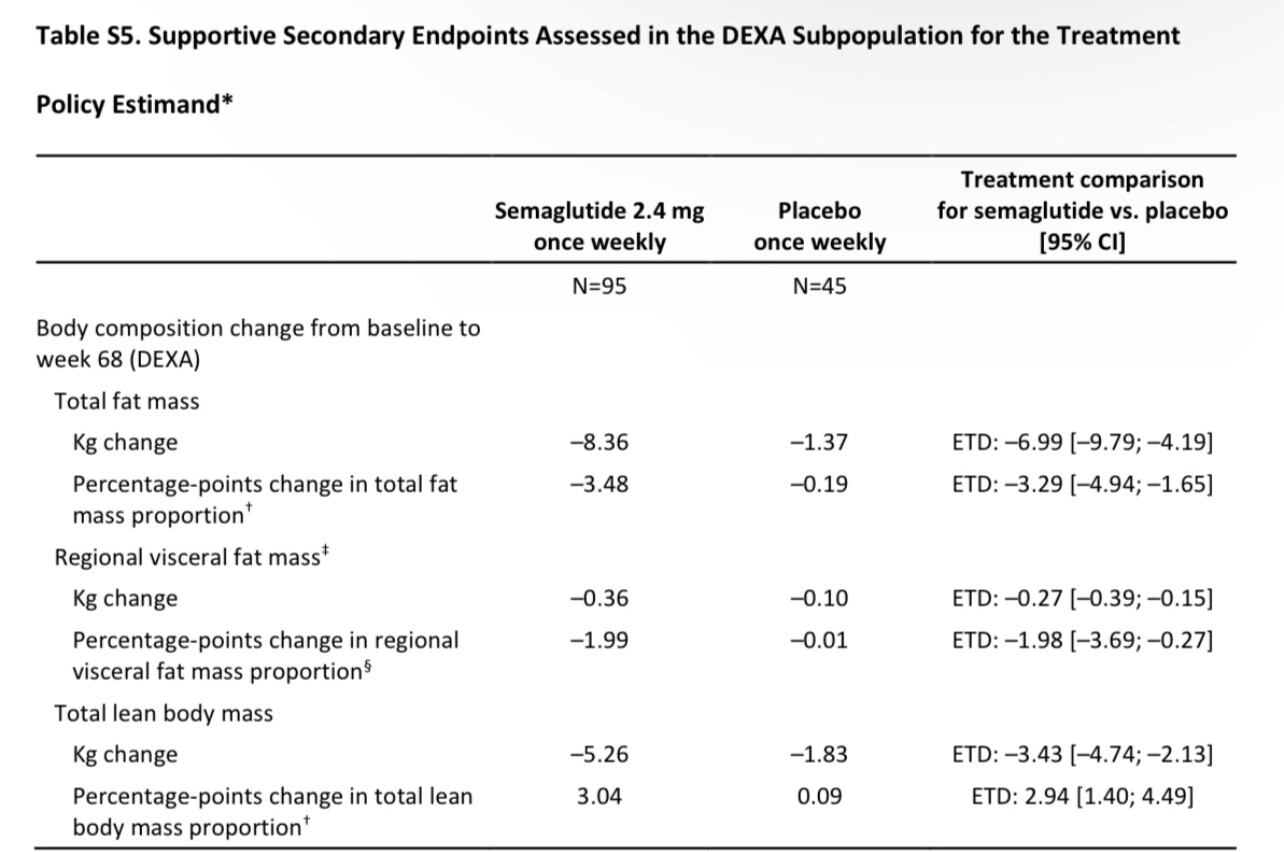Interesting article about the risks of using semaglutide for weight loss in healthy people.
from the information we can scrape together based on sub-cohort data, these “miracle drugs” start to look a bit less miraculous. In 2021’s STEP 1 trial – the first and only trial demonstrating the efficacy of semaglutide as a treatment for adult obesity – a subset of 140 patients underwent DEXA scans for body composition analysis. Among these patients, lean mass accounted for approximately 39% of total weight loss – substantially higher than ideal. In a substudy of 178 patients from the SUSTAIN 8 trial on semaglutide as a diabetes treatment, the average proportion of lean mass loss was nearly identical at 40%, despite lower doses and less total weight loss than in the STEP 1 trial.
While those with obesity stand to reap considerable health benefits from fat loss, the potential benefits of fat loss among healthy-weight individuals are minimal and are unlikely to offset the sizable health risks associated with reduced lean mass. Further, because the only large-scale trials of GLP-1 agonists have been conducted in obese or overweight study populations, we don’t yet know if these drugs affect body composition in normal-weight individuals in an equivalent manner.
Has anyone using those compounds noticed any muscle loss?

